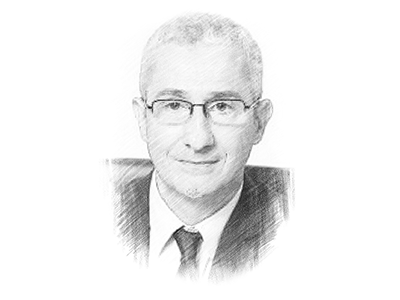
Core banking migration at Banque du Léman
Philippe Brunier is COO and member of the management committee at Banque du Léman.
He is in charge of middle and back office, IT, security and general resources.
« We went in saying that we would save money.
How did Banque du Léman enter the French-speaking market in 2014?
We started our activities by working with Orbium, a consulting firm specialized in bank onboarding, and by choosing a core banking provider. From the outset, our aim was not to deploy technology but to be able to respond very concretely (and quickly) to the needs of our clients in a cross-border positioning. For us, technology should only be used to support the banking process.
You are a subsidiary of a large French banking group, so why did you choose to outsource from the start?
Outsourcing is in our DNA, which is why we felt it was the right thing to do. We are a small bank (today 40 employees), so we had to find « industrial » partners who could provide us with all the functions that a bank can expect from a service provider: core banking, web, mobile applications, but also security, continuity, compliance, back office, etc.
You have very recently changed your core banking partner: why did you make this choice after only a few dozen months of existence?
For the reasons I have just mentioned, it was essential for us to find partners who have a proven culture of retail banking in Swizterland and beyond the usual services, would enable us to « match » perfectly the Swiss banking market and our core business stream.
The platform on which we were onboarded did not seem to us to be sufficiently in phase with our long-term development objectives, and that is why we quite naturally turned to the « first of the class ».
How did you choose these new partners?
Through the call for tenders that we launched, we sought to rely on « industrial » partners more oriented towards our retail, corporate and real estate activities, all in a cross-border environment since our target clientele is mainly composed of clients and companies working on both sides of the border. Swisscom and Finnova provided us with the answers we were looking for.
Isn’t it difficult to go to your board of directors so quickly in order to migrate all your core banking?
It was daring, but at the same time we went in saying that we would save money. In order to establish our brand in the long term, we showed them that the tool we had at our disposal was not sufficiently adapted and that we needed a solution that corresponded to retail criteria and whose administrative productivity was proven in order to contain fees.
You talk a lot about efficiency. How do you measure it?
This is an essential criterion for a bank of our size. It’s about our capacity to increase our volumes (number of account openings, number of transactions per day, number of credits, …), without significantly impacting our current resources (HR, capital, premises, …).
We have also run a very strategic project with Swisscom: Client Onboarding which allow prospects to become customers more quickly, more efficiently (…) and above all more autonomously.
And we are also fully focused on quality of service – to be transparent, we measure client satisfaction and recommendation through an external survey firm and publish customer satisfaction rates on our website, which I believe is unique in French-speaking Switzerland. Efficiency as the Apex!
What effects do you expect this migration will have on your business?
We expect two contributions, one from banking and one from IT. From a banking point of view, as I said, we want to be more cost efficient, to improve our administrative productivity and to have all functionalities for our 3 business pillars: retail, corporate and real estate activities.
And from an IT point of view, our vocation is to be a connected bank, our first agency is the web. So we need to be able to rely on the skills of our two partners to move together towards our objectives and benefit from the contributions of people who have part of their head in the future and are capable of proposing innovative concepts: we need to be in the game, we drive our car … we are not only passenger.
Interview by Frédéric Barillet
